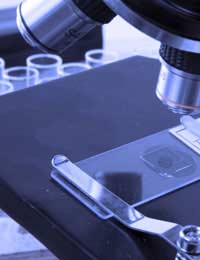Medical Equipment Engineers and Technicians

If you have already considered the field of engineering, you might want to take some time to think about specialising as a medical equipment engineer or technician. Through a unique combination of biology and medicine, a medical engineer designs and creates special devices to handle medical issues and challenges in the health care field.
While some medical equipment engineers will work in research with various health professionals, others will assess and investigate different systems and products that are used in health care. For instance, a medical engineer might design or improve upon artificial organs or perhaps create a better prosthesis. Medical engineers even work in systems applications, where they may develop more secure or effective information systems such as those used in medicine and health.
Your Education for a Career in Medical Equipment Engineering
To really excel in a career as a medical equipment engineer, you will need at least an undergraduate degree in one of the engineering specialties but you should aim for a graduate degree for the best; salary, job stability and choices for a working environment. Your educational background can involve mechanical engineering or you might prefer the technology field, where you can train in electronics engineering. Not only that, but you will also receive training in the biomedical sciences, which means you will focus on areas such as orthopaedic engineering or biomechanics.As mentioned, a graduate degree is ideal; in fact, some entry-level engineering positions will require a graduate engineering degree. You will take courses in medicine, computer technology, physics, mathematics and many others. You will also likely have a practical component to put the theoretical learning into practice.
The United Kingdom (UK) has a breadth of choices for engineering courses, particularly those geared to the medical profession, so you should have no difficulty finding options for your studies.
Employment Prospects as a Medical Equipment Engineer or Technician
Biomedical engineering is one of the most rapidly advancing fields in health care right now. Most engineers in the health care field are employed in pharmaceutical and medical manufacturing areas or they work in instrumentation and supplier aspects of health care. Some, however, work in hospitals, particularly those in the area of orthopaedics. There are also engineers who work independently or in research.As our population ages and the morbidity and mortality from diseases and their complications increases, the demand for better medical equipment and devices is rapidly growing, particularly in hospitals and for home use. Tissue engineering and the use of computers for surgeries means that highly advanced and sophisticated equipment and methods are needed. Biomedical engineers fill the need for effective equipment and programs to improve our health care.
Salaries for medical equipment engineers and technicians vary but technicians work in a more supportive role and will make less than engineers. A biomedical engineer usually makes a minimum of £30,000 but this can climb to substantially more, growing to £50,000 or more each year.
If engineering is an area you enjoy but you also have a passion and interest in medicine, you should think about embarking on a career as a medical equipment engineer or technician. You will have the opportunity to train in a field that brings new, more advanced equipment to help improve and save lives.
- Recession Proof Health Careers
- A Career as a Surgical Technologist
- Train to Be a Genetic Counsellor
- Regulatory and Legal Health Careers
- A Career as an Optician
- Dental Laboratory Technicians
- Health Careers and International Work
- Work in Respiratory Therapy
- Work as a Travel Nurse
- Hospital Sanitation Worker
- Work-from-home Health Jobs
- What is a Phlebotomist?
- Jobs in Private Health Insurance
- Nurses for Paediatric Home Care
- Work as a Natural Foods Chef
- Working on a Scientific Advisory Board
- Start a Non Profit Health Agency
- Become a Critical Care Transport Nurse
- A Career as a Hospital and Clinic Architect
- NHS Estates and Facilities Managers
- Art Curators in the NHS
- A Career in Wellness Coaching
- Donor Carer Work
- Hospital Food Catering
- Working in Ocular Prosthetics
- A Camouflage Cosmetician Career
- Learn to Be a Personal Health Chef
- A Career as a Prosthetist/Orthotist
- A Laboratory Science Career
- Clinical Research Associates
- Forensic Science Careers


Re: A Career as a Surgical Technologist
Hey, soon to be a qualified ODP in the UK and wanted to move to the states, as ODP is UK specific I have looked into…
Re: A Career as a Surgical Technologist
Hello... Am surgical technician from Kenya with 2 years experience.I want to migrate to the UK to increase my skills and…
Re: Unions for Health Workers
I would like to joine trade union. Can you help me please?
Re: A Career as a Surgical Technologist
I am a surgical technologist in the US. I would like to move to London to work there. Do I need to get certified in the…
Re: A Career as a Surgical Technologist
I am Theatre Practitioner band 4, (surgical tech) I think that’s what they are called in in America, Register nurse in…
Re: Hospital Sanitation Worker
This is my first brief visit, and I'm delighted to have everything in one location.
Re: What is a Phlebotomist?
I am looking to work to hear from you.
Re: Work in Respiratory Therapy
My sister is a respiratory therapist with 5 years experience from India and I year from UAE. She is a graduate of respiratory care…
Re: A Career as a Surgical Technologist
Hi! I am training to become a surgical technologist in Indiana in the US but I am planning on moving to England next…
Re: A Career as a Surgical Technologist
Surgical Technologist Advise please Where can I study Surgical Technologist please.